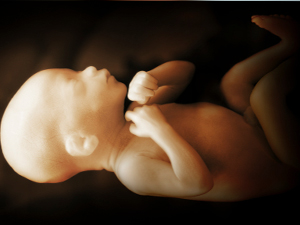UN Human Rights System Becomes Pro-Abortion Echo Chamber
 When El Salvador’s turn came up to be assessed by fellow countries on its human rights record, twelve countries criticized its legal protections for unborn children and urged it to permit legal abortion.
When El Salvador’s turn came up to be assessed by fellow countries on its human rights record, twelve countries criticized its legal protections for unborn children and urged it to permit legal abortion.
The Universal Periodic Review (UPR) is a process for countries to hold each other accountable for the promises they made by signing human rights treaties. However, no United Nations treaty establishes or recognizes a right to abortion.
A new analysis finds a surge of pressure by a group of countries imposing disputed interpretations of human rights agreements on countries whose laws protect their youngest citizens. Like UN treaty monitoring committees that routinely misconstrue countries’ obligations, the new UPR system, now in its second cycle, is becoming increasingly hostile to countries whose laws protect unborn children and define marriage as between a man and a woman.
This summer, the United Nations Population Fund (UNFPA) released a report in collaboration with the Sexual Rights Initiative. It tracks recommendations made by one country to another during the first cycle of the UPR, which ran from 2008-2011. Of all the topics they tracked under the “sexual and reproductive health and rights” umbrella, 37 pertained to abortion (although none addressed forced or sex-selective abortions), and 232 addressed discrimination based on sexual orientation, another topic that falls beyond the scope of international human rights treaties.
Not all recommendations were warmly welcomed by recipient countries. Out of 30 recommendations to remove restrictions on abortion, only four were accepted, three received ambiguous responses, and 23 were rejected outright.
In the second UPR cycle, which began in 2012 and runs until 2016, recommendations concerning abortion have increased by 155% — a number certain to rise further by the cycle’s conclusion. In both cycles, nearly 60% of recommendations directly call for changes to countries’ abortion laws, while most of the remainder call for increased consideration of changing laws and expanding the existing legal availability of abortion. (See figure).
While universal in theory, the UPR exhibits strong regional tendencies. Ninety-two percent of abortion pressure comes from Europe, and 74% targeted Latin American countries like El Salvador and Nicaragua, both of which received more than ten pro-abortion recommendations in the second UPR cycle. The most persistent source of pressure is the Nordic region, where five countries account for 36% of European abortion recommendations. Norway alone accounts for 13%. (See figure.).
Non-governmental organizations (NGOs) can also make use of the UPR system by filing reports as “other stakeholders.” The Sexual Rights Initiative, a European-based partnership seeking to use the UPR to promote abortion and LGBT causes, recently announced a partnership with local NGOs in seven countries facing their periodic review. One collaboration, targeting Bolivia, is with Ipas, an organization that exists solely to promote abortion.
Many NGOs filing reports with the UPR are based in pro-life countries but receive funding from Europe and other wealthy countries. The Friday Fax reported on one initiative by Denmark and the Netherlands to promote abortion and sexual rights groups in developing countries. In this way, Northern European governments use both the government and the civil society platform of the UPR to raise the volume in this pro-abortion echo chamber.
It remains to be seen how well the human rights concept can withstand being co-opted by wealthy countries seeking to push a sexually “progressive” worldview on the rest of the world.

